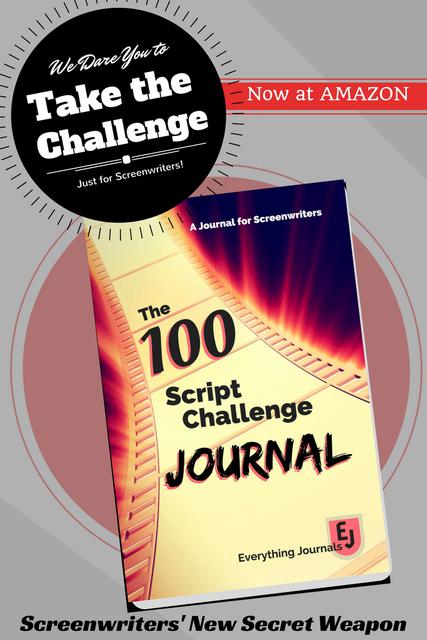Screenwriting Pitfall #5: First Pages
Do producers and other gatekeepers only read one to ten pages of a script, before making a decision to pass? Yes. And that’s when screenwriters everywhere pump the air with a fist and curse the injustice. Gotta say, I’ve been there with you, but not anymore.
Why do producers make snap decisions? Why? Why? Why?
One word: Time.
In any given day, I could curl up with 100 scripts to read. You see the problem? Outside of not having that much free time, you wouldn’t want me to take it… if your script was number 47 in the line-up and I could only read three scripts a day—if I had to read every page.
So, don’t blame the producer. Blame time.
The flip side of time is a combination of requirements and readiness. When you understand story, screenplays and know what you can and can’t turn into a feature film or TV show, these elements stand out pretty fast. I’m sorry to be so blunt, but it doesn’t take long to know if a script is a pass. Below are the main deciding factors (for me and probably most producers reviewing your script).
First up, requirements. These are internal company needs and are specific for the producer evaluating your script. They need certain kinds of scripts, based on the projects they consider marketable and can setup with funding.
Reasons to Pass Due to Company Requirements:
- Script does not fit the genre. Or a genre hybrid doesn’t work. While most scripts are a combination of a couple genres, how much each genre is represented in a script can lead to a pass, if it goes too much one way and not the other.
- Script does not fit the budget. Can be too expensive or too contained. Believe it or not, contained isn’t a magic work for all producers. Some producers think contained scripts are too much about how the action is contained and that it hinders the story.
- Script does not fit desired acting roles. Can be any reason from not fitting a name actor we have in mind to being too slanted to a certain age/gender outside of our target audience.
- Script does not fit a desirable location. This could also tie into the budget, but some producers have pet peeves with certain locations and will automatically pass. I met a producer that never wants to film in Las Vegas. What? (Viva Las Vegas, baby!)
You can probably work around some of the above issues with good research; however, the majority of them could be out of your control. You should still understand that all of the above are reasons for a pass, whether you can do anything about them or not. Take heart, though, because even if you’ve sent a script that production needs rule out, you can wow a producer with your writing and be invited to pitch again. That’s a foot-in-the-door, and a win in my book!
Below are reasons that you have more control over. They are based on reading your first ten pages or less. (For the record, if I’ve decided to read your script, I only stop reading because I can check off a majority of the points below—which happens mentally. There is no real list.)
Under readiness, we’re looking at an overall readiness to film. Sure, every script needs work to tailor it to the production and attached talent, but we’re judging if the script is at a professional level to kickstart pre-production. (Typos and standard structure would also be on this list, but I didn’t include them. All the scripts I’ve been sent, or considered through a business like InkTip, haven’t had those issues.)
Reasons to Pass Due to Readiness:
- Script is confusing. This can happen for many reasons. Here’s a couple of the most common:
- Character confusion—too many at once or not fully introduced.
- Jarring scene jumps that lack transitions.
- Secondary storylines take over.
- Dated. If the script is somehow dated, and it’s not supposed to be a period piece.
- Groaning inducements. If anything in a script makes me jump out of the storyline, and either groan or roll my eyes, it’s a pass. This usually happens with dialogue.
- Wrong Medium. Sometimes a producer thinks your feature script should be a television script, or vice versa. If they don’t cover both, then it’s a pass.
- Meh. Something has to excite the reader. I’m attracted to opening scenes that I know my executive producer will love. (Unique action that builds tension!) Whatever the source, something needs to come off that page and keep the reader reading.
- Script fixes. If my mental tally of needed fixes gets too high, while I’m still reading Act One, it’s a pass. Too many needed changes in Act One hint of a similar number needed in every other act. It means the script is not close to being production ready, or able to send out to distributors for funding or talent for attachments. Very few producers will take on a script that needs months of development—just for the script. They might as well create a concept in-house and start from scratch, instead of putting time into fixing a script that they might not be able to fix.
Bottomline: Don’t send out a script before it’s ready! It’s very tempting to pitch your script and/or send out your script as soon as you type Fade Out; however, take the time to get feedback from someone you trust. It doesn’t have to be a paid service, but it does have to be from a source that understands screenwriting and your given genre.
If you’d like to know more about the ins and outs of first page passes, read the extended version of this post in the Screenwriters Pitfalls List or join our newsletter to get the extended pitfall sent to you every time we put out a new one.


Leave a comment